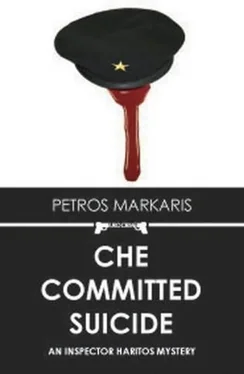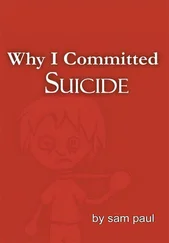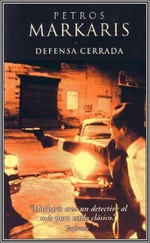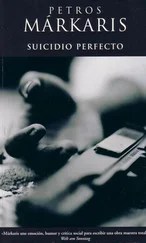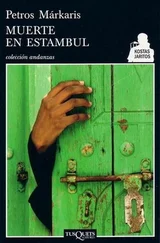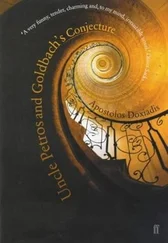The sweet Greek coffee at the neon cafeteria in Agiou Lazarou Square was like dishwater, the waiter was a sourpuss by conviction, yet, despite everything, I berthed there every morning with my paper. Maybe I’d been won over by the peace of the square, with its two old women and three unemployed Albanians on the benches; then again it might well have been the familiar Greek magnet that always attracts you to places that irritate you, so that afterwards you can happily curse your fate.
My usual table was taken by three lads who were all drinking iced coffee. I sat down two tables further away, in the shade, as the weather had suddenly turned unpleasantly hot, and I opened my Sunday convenience store. From inside the paper I took out: a magazine of general interest, a magazine for arts and culture, a fashion magazine, a TV guide, a crossword book, an advertisement for washing powder, an advertisement with a toothpaste sample, an advertisement for mouthwash and three coupons for interest-free monthly payments. I tossed them all into the plastic bag that my local kiosk owner always gives me with the comment ‘Careful, Inspector, don’t spill the newspaper,’ and kept hold of the main section of the newspaper, which was no more than a dozen pages. I was quickly thumbing through it to find the report on the two Kurds, when I saw the waiter putting the sweet Greek coffee down in front of me and walking away in silence. He had brought it without even asking me.
‘Just a moment,’ I called out and he turned round. ‘How do you know that I don’t want an iced coffee today?’
He gave me a bored look and shrugged his shoulders. ‘You don’t strike me as someone who spends any more on Sundays,’ he said and went on his way.
I was ready to give him a mouthful, but my eye fell on a photograph of Frearion Street and a three-column article devoted to the murder. I started to read the article with relish, but after the first few lines I realised it was a rehash. Only the third column had anything new, and that was the names of the two Kurds: Kamak Talali and Masoud Fahar, who indeed had worked on the construction of the Olympic Village that was contracted to Favieros’s company. The only new information came from the rejuvenated Markidis, who confirmed what we had both suspected from the beginning: namely that the murderers had used knockout spray on the victims in order to execute them in their own good time.
I scanned quickly through the rest of the paper, but I could find nothing other than the usual screeds with analyses of foreign, domestic and financial policies. I left the exact money for the dishwater on the table and next to it the newspaper with all its accessories.
I leisurely walked up Aroni Street and tried to drive out my sinful thoughts concerning the two Kurds, Favieros and the Philip of Macedon Greek National Front. Besides, it was far more pleasant to think of Sunday lunch with Fanis, which had become established as a regular meeting of the ministerial cabinet, with the exception of those Sundays when he was on duty.
The door of the flat opened, leaving me with the key in my hand. Adriani, a worried look on her face, was standing in the doorway and blocking my way. Evidently she had been listening out for the lift so that she could rush and open the door for me.
‘What is it?’ I asked her, listening to the trembling sound of my voice, because my mind automatically imagined that something bad had happened. I thought perhaps something was wrong with Katerina and Fanis had come to tell us.
Instead of answering, she stepped out into the corridor, leaned towards me and whispered into my ear in an angry tone: ‘That insistence of yours not to want to have a mobile phone. My mother was right: those who wear blinkers become as stubborn as a mule.’
It was true that she had inherited that method of analysing character from her mother. According to my mother-in-law, a blinkered person was stubborn, a slant-eyed person was a dark horse, a large pointed nose signified someone stingy and miserly, while a hooked nose signified someone lecherous and insatiable. These were the character analyses that Adriani had inherited, even though her mother had no connection at all with Lombroso, whose work we studied in the criminology course.
‘What is it?’ I asked again and received a second shriek in the ear.
‘Go inside and you’ll see!’
I went into the sitting room and stood there, rooted to the spot. He was sitting in the armchair that formed a corner with the TV, but as soon as he saw me he leapt to his feet. We both stood there motionless staring at each other. He was waiting for me to say something, but I didn’t know what to say. It was the first time that Ghikas had ever come to my house. I continued to stare at him in astonishment, while trying to answer two questions together: what was the reason for this Sunday visit and what should I say to him by way of welcome. Should I confine myself to being formally polite, that would sound extremely cold, or should I break into raptures of fake enthusiasm?
In the end, I resorted to a neutral welcome. ‘To what do we owe the pleasure after such a long time?’ I said, indirectly expressing my grievance that he never came to see me when I was laid up in bed.
‘First of all, I came to apologise for my behaviour in my office the other day.’
I reflected that whatever I said would sound false so I decided to remain silent. Besides, that ‘first of all’ meant that there was more. So I waited.
My silence obliged him to continue. ‘It’s not that I wanted Yanoutsos; he was forced upon me,’ he said. ‘There wasn’t a thing I could do. He has friends in high places.’
‘That explains how he got himself accepted into the Anti-terrorist Squad.’
He burst in laughter. ‘The Anti-terrorist Squad were looking for a way to get rid of him and so they sent him to me.’
I had no reason not to believe him because what he said tied in with what Sotiropoulos has told me over the telephone. Adriani came out of the kitchen holding a tray with a cup of coffee. She put it down on the table beside him, returned my thanks with a curt ‘You’re welcome’ and went out of the room.
‘I heard that you went by the flat where the two Kurds were murdered.’
He looked at me and waited, this time, for a reply. I shrugged my shoulders.
‘If it’s in your veins…’ I answered vaguely.
‘I want your opinion.’
‘I can’t tell you very much, but it’s for sure not the work of Mafiosos like Yanoutsos says. They were knocked out using spray and then shot through the eye. Mafiosos would have riddled them with bullets and run off. This particular business has all the signs of an execution and it’s a case for the Anti-terrorist Squad.’
‘Yanoutsos desperately wants the case.’ He shook his head slightly and heaved a sigh. ‘I don’t like this whole business, Costas, I don’t like it at all.’
‘What business? With the two Kurds?’
‘No! Favieros’s suicide. Something doesn’t add up. Even if he’d already decided to commit suicide, he would have done it discreetly. Not in front of the cameras.’
I saw almost with relief that his tactics hadn’t changed. He was still presenting my ideas to me as his own.
‘You were of a different opinion the other day in your office,’ I said to counter him.
‘Because I didn’t want to open up in front of Yanoutsos. I have something in mind but I don’t quite know how to organise it.’
I kept silent again, but this time in order to hear his organisational problems.
‘Officially, I can’t order an investigation into the Favieros case. There’s no doubt that he committed suicide, consequently the police can’t do anything. That’s why I didn’t open my cards in front of Yanoutsos.’
Читать дальше
